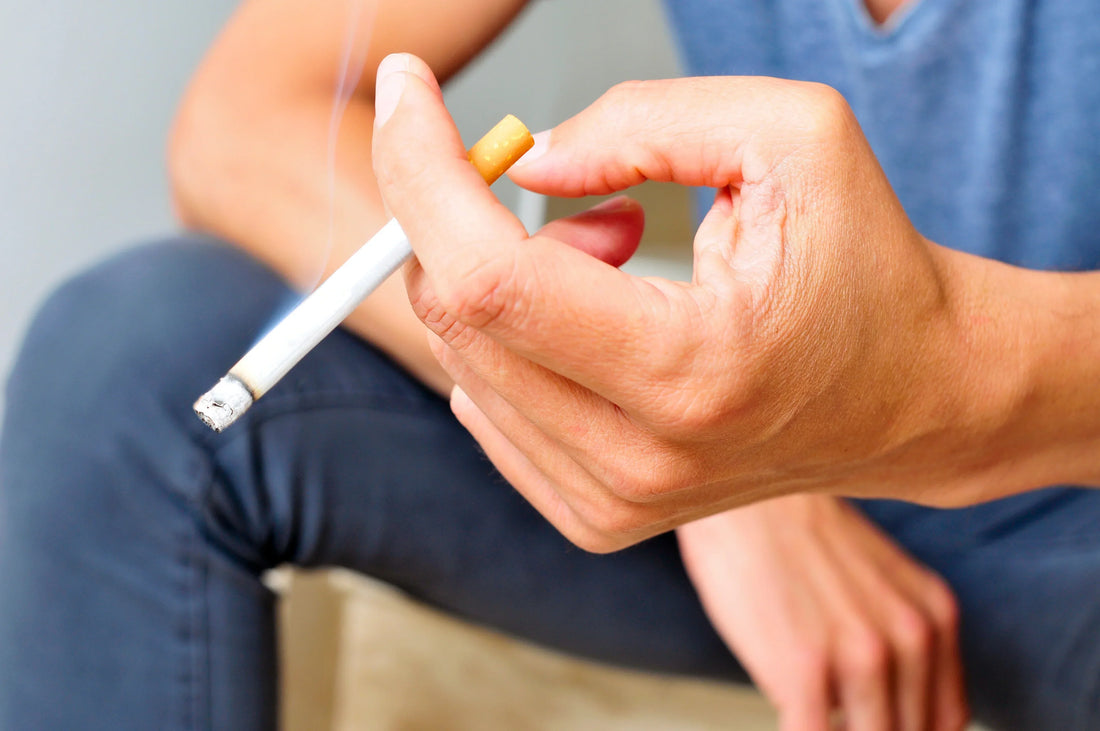
How Lifestyle Factors Like Smoking and Alcohol Impact Male Fertility Health
Share
Introduction
Lifestyle choices play a crucial role in overall health, and when it comes to male fertility, smoking and alcohol consumption can have profound effects. These habits are known to disrupt hormone balance, damage sperm quality, and increase the risk of long-term health issues. Understanding these impacts can empower men to make informed decisions that support their reproductive and overall well-being.
The Impact of Smoking on Male Health
Smoking is a well-documented risk factor for various health conditions, but its effects on male reproductive health are particularly concerning.
Hormonal Disruption
Smoking has been linked to lower testosterone levels, which can lead to reduced libido, fatigue, and decreased muscle mass. Additionally, smoking increases cortisol, a stress hormone that can further disrupt testosterone production. The oxidative stress caused by smoking introduces harmful free radicals into the body, damaging reproductive cells and impairing hormone function.
Fertility Concerns
Research has consistently shown that smoking negatively impacts sperm health. Men who smoke often experience reduced sperm count, poor motility, and abnormal morphology. Even more concerning is the increased risk of DNA fragmentation in sperm cells, which can lead to difficulties in conception and higher chances of miscarriage if fertilization occurs.
Long-Term Health Risks
Beyond fertility, smoking significantly increases the risk of cardiovascular disease, lung disease, and various cancers. The connection between smoking and male reproductive cancers, including testicular and prostate cancer, highlights the importance of quitting as early as possible. (Read More)
How Alcohol Affects Male Health
Alcohol, when consumed excessively, can wreak havoc on male reproductive health and overall well-being.
Hormone Imbalance
Alcohol consumption interferes with the body's ability to produce testosterone. Chronic drinking impairs liver function, which is essential for metabolizing hormones. As a result, estrogen levels may rise, further suppressing testosterone production and leading to symptoms like reduced muscle mass, fatigue, and mood disturbances.
Reproductive Health Issues
Excessive alcohol intake can cause a decline in sperm quality and quantity. Studies show that alcohol negatively affects sperm motility and increases the likelihood of sperm DNA damage. Additionally, alcohol consumption is a known risk factor for erectile dysfunction, making it harder for men to achieve and maintain an erection.
Systemic Health Impacts
Beyond reproductive health, chronic alcohol consumption can lead to liver disease, metabolic disorders, and even neurological decline. The long-term consequences of excessive drinking affect not only fertility but also cognitive function, immune health, and cardiovascular stability.
Strategies to Mitigate Lifestyle-Related Health Risks
The good news is that men can take proactive steps to minimize the damage caused by smoking and alcohol while improving their reproductive health.
Healthy Lifestyle Changes
Quitting smoking is one of the most beneficial steps a man can take for his fertility and overall health. Various programs, including behavioral therapy, nicotine replacement therapy, and prescription medications, can support this process. Similarly, moderating alcohol intake—or eliminating it entirely—can significantly improve hormone balance and sperm health.
Nutrition plays a vital role in counteracting the oxidative damage caused by smoking and alcohol. A diet rich in antioxidants, vitamins, and essential nutrients can help repair cellular damage. Eating a fertility-supportive diet and increasing antioxidant intake can support overall sperm quality and hormone production.
Medical and Therapeutic Interventions
For those who have already experienced fertility issues due to smoking or alcohol use, medical interventions can help restore balance. Hormone therapy may be recommended for men with severely disrupted testosterone levels. In cases where sperm damage has already occurred, fertility treatments such as intrauterine insemination (IUI) or in vitro fertilization (IVF) may be viable options.
Building a Support System
Lifestyle changes can be challenging, but having a strong support system increases the chances of success. Counseling, support groups, and online communities provide motivation and resources for those looking to quit smoking or reduce alcohol consumption. Regular check-ups with a healthcare provider also help track progress and address any underlying health concerns.
Resources and Support for Lifestyle Changes
Finding Professional Help
Men struggling with smoking or alcohol addiction can benefit from consulting specialists such as addiction counselors, lifestyle coaches, and medical professionals. Urologists and reproductive health experts can also offer guidance on restoring fertility and hormone balance after long-term exposure to these harmful substances.
Educational and Support Resources
Numerous online communities and organizations provide valuable information and peer support for those looking to make healthier lifestyle choices. Public health agencies, scientific research institutions, and advocacy organizations offer credible insights into how smoking and alcohol impact reproductive health and overall well-being.
The impact of smoking and alcohol on male fertility is significant, but the good news is that many of these effects are reversible. By quitting smoking, moderating alcohol consumption, and adopting a healthier lifestyle, men can enhance their reproductive health, restore hormone balance, and improve overall well-being. Seeking professional help and building a strong support system can make the journey to better health more manageable. The body is resilient, and making informed choices today can lead to a healthier, more fertile future.


